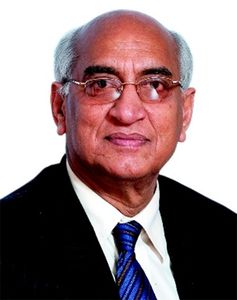As the Raisina Dialogue, which concluded in New Delhi on March 19, marked its 10th anniversary, its theme, Kalachakra (wheel of time), proved especially apt. India finds itself at a pivotal moment, with global efforts―led by the United States― underway to discuss and shape the future of the ongoing Russia-Ukraine conflict. India’s diplomatic balancing act is under the spotlight, as it navigates its historical ties with Russia, growing partnerships with Ukraine and the west and the evolving geopolitical landscape. As critical negotiations unfold, India must strategically assess its role, ensuring that its national interests remain protected, especially in the event of a breakdown in talks and the imposition of further sanctions on Russia.
India’s diplomatic imperative
While India’s foremost priority is maintaining stability, it must also pragmatically evaluate its diplomatic leverage, economic security and strategic autonomy. A balanced approach will enable New Delhi to safeguard its interests, while reinforcing its global standing as a responsible and influential power committed to peace efforts.
India has consistently advocated for dialogue and a peaceful resolution to the Russia-Ukraine conflict. While maintaining its longstanding strategic partnership with Russia, it has also underscored the importance of Ukraine’s sovereignty and territorial integrity. This careful positioning allows India to be perceived as a neutral and credible voice in global diplomacy―an image further bolstered by its G20 presidency in 2023 and active participation in multilateral organisations.
A measured approach to US-Russia negotiations
India views the ongoing US-Russia negotiations with cautious optimism, hoping for de-escalation and stability in global geopolitics. However, prolonged hostilities pose significant risks, including economic disruptions, energy insecurity, and increased geopolitical volatility. Given its strong ties with both Russia and the west, India is uniquely positioned to play a constructive role in diplomatic mediation.
To leverage this position effectively, India must:
• Act as a diplomatic bridge
India can facilitate backchannel discussions between Russia, Ukraine and key global stakeholders.
• Support humanitarian initiatives
India can play a critical role in ensuring the safe passage of civilians, humanitarian aid delivery and prisoner exchanges by leveraging its non-aligned stance.
• Promote economic cooperation
Engaging both Russia and Ukraine on trade and investment can serve as a confidence-building measure, encouraging economic interdependence as a pathway to stability.
In this context, it would be relevant to quote from Prime Minister Modi’s recent interview on the Lex Fridman podcast: “I can tell President Putin that this is not the era of war. I can also tell President Zelensky that regardless of how many people stand with you, there will never be a resolution on the battlefield. Ukraine may hold countless discussions with its allies, but it will bear no fruit. Discussion must include both sides…. Current situation provided an opportunity for meaningful talks between Russia and Ukraine…. I am not neutral. I strive for peace.” He concluded by underlining India’s position and expressing concern about how the war has hurt the Global South.

Mitigating risks from potential sanctions
Should negotiations collapse, leading to intensified sanctions against Russia, India must proactively implement a strategy to protect its economic and strategic interests. Key measures include:
i) Maintaining diplomatic equilibrium
India must continue engaging with the US and European allies to avoid secondary sanctions, while preserving its strategic autonomy in foreign policy decisions.
ii) Diversifying energy sources
While India has significantly increased its oil imports from Russia at discounted rates, it must prepare for potential restrictions by strengthening partnerships with Middle Eastern and African energy suppliers. India can also explore alternative energy options, provided they remain economically viable, given logistical constraints and increased costs.
iii) Enhancing trade with alternative markets
To mitigate potential disruptions in trade with Russia, India should expand its economic engagements with ASEAN, Africa and Latin America.
iv) Strengthening rupee-rouble transactions
To navigate financial sanctions, India should enhance trade settlements in local currencies and explore alternative payment mechanisms, including digital currency collaborations.
v) Expanding defence procurement channels
Given India’s reliance on Russian military equipment, accelerating domestic defence indigenisation and diversifying military procurements through partnerships with France, Israel and the US will be crucial.
By adopting a well-calibrated strategy, India can navigate the complexities of the Russia-Ukraine conflict, while strengthening its role as a key global stakeholder in peace and stability. As global negotiations continue to evolve, India’s ability to maintain strategic autonomy, economic resilience and diplomatic credibility will be critical in shaping its future on the world stage.
The author is former Indian ambassador to Ukraine.


